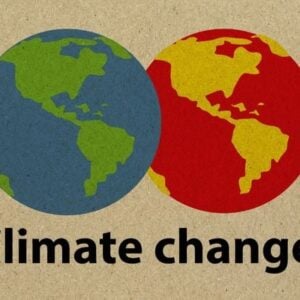Rising heat waves, floods, and droughts are placing Africa’s health systems under unprecedented strain, threatening the well-being of millions of vulnerable communities. In response, governments, innovators, and development partners are exploring new approaches to protect the continent through climate-resilient health systems.
At a two-day regional workshop in Nairobi, organized by the World Health Organization (WHO) Regional Office for Africa and the Africa Enterprise Challenge Fund (AECF), participants co-developed a proposal aimed at mobilizing innovative financing to strengthen health systems against climate-related threats. The workshop brought together governments, private sector representatives, and technical experts to identify financing tools, validate governance structures, and align projects with national and global climate priorities.
Dr. Jeremiah Mushosho, WHO Africa Regional Team Lead for Climate Change, emphasized the transformative potential of the initiative, highlighting the role of both public and private capital guided by the Adaptation Fund to unlock the scale of investment required to safeguard Africa’s future. For families already grappling with waterborne diseases, food insecurity, and other climate impacts, these efforts are urgent.
Victoria Sabula, CEO of AECF, underscored the need to move beyond traditional aid by leveraging private sector innovation and investment to deliver lasting solutions that ordinary African families can rely on. Gregoire Piller, External Relations Officer at WHO Africa, stressed that collaboration across governments, international institutions, and the private sector is critical to address climate-driven health challenges effectively, building trust while unlocking financial innovation.
Delegates from countries including Benin, Burkina Faso, Uganda, and Zimbabwe participated in shaping the initiative, ensuring that proposed financing models are both sustainable and scalable. Technical guidance from the Adaptation Fund further strengthened the effort, helping to ensure that the initiative can address climate-sensitive diseases, food insecurity, and extreme weather events across the region.
The workshop represents one of the first regional efforts to design blended financing models that integrate public and private capital to enhance Africa’s resilience to climate-related health risks, supporting both immediate responses and long-term adaptation.
WHO AFRO continues to lead public health initiatives across Africa, AECF supports innovative enterprises to strengthen rural and marginalized communities, and the Adaptation Fund finances projects that build resilience and reduce climate risks in vulnerable populations.







